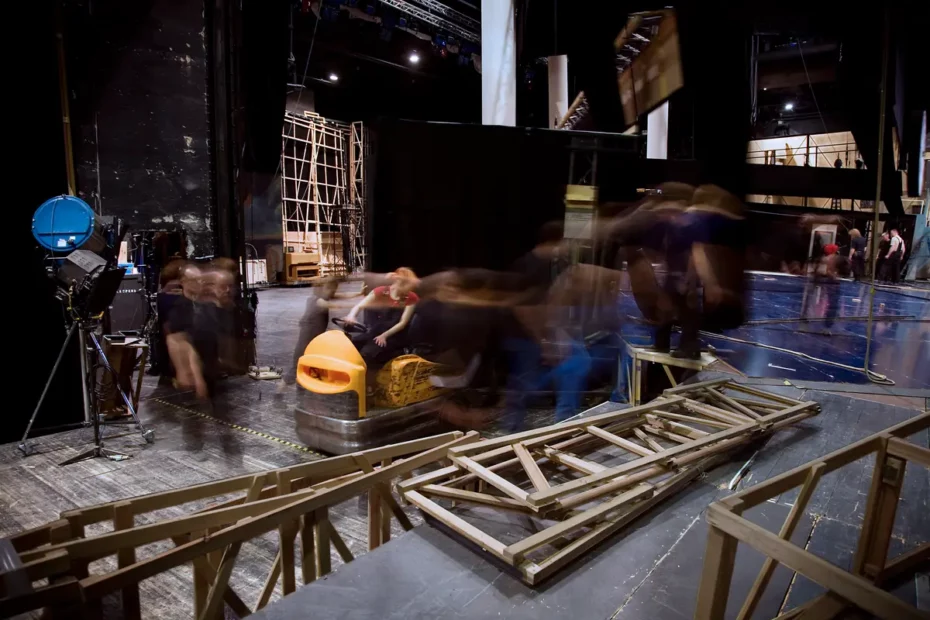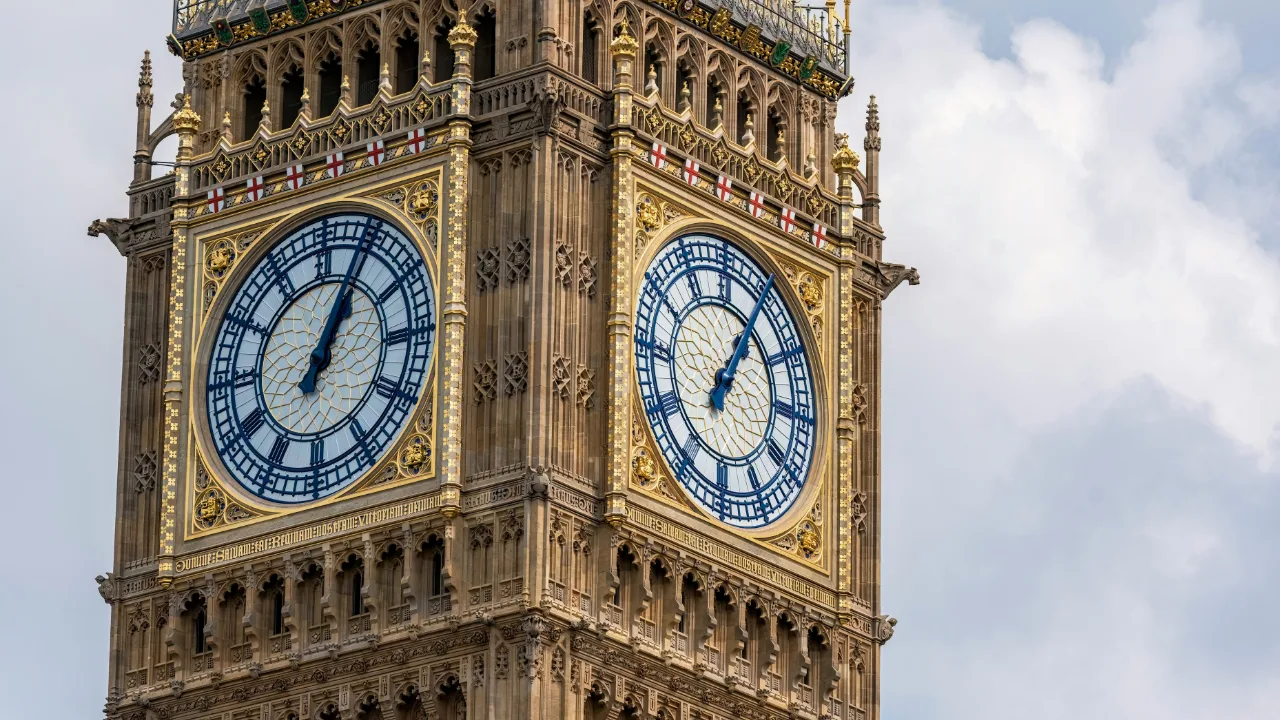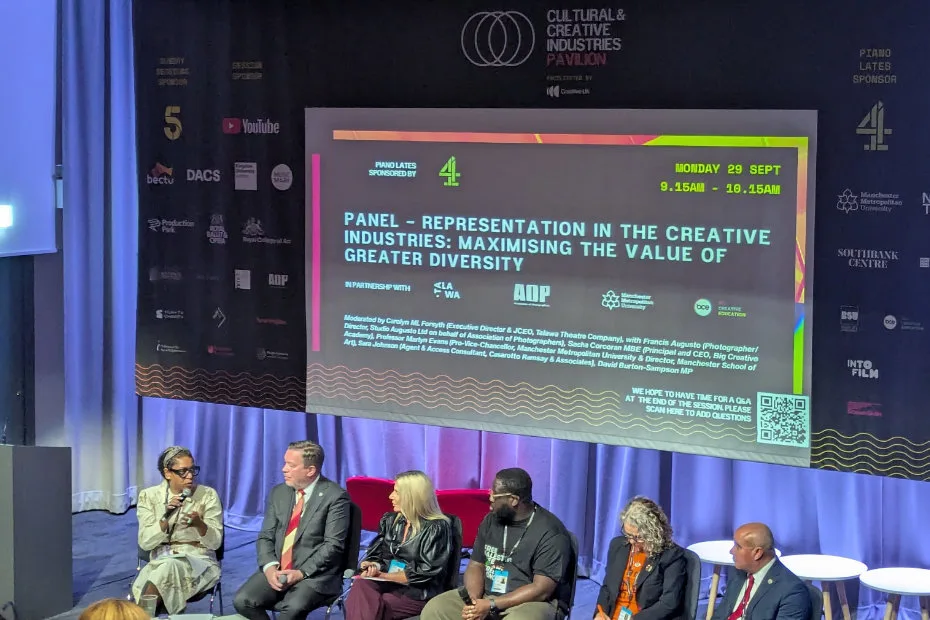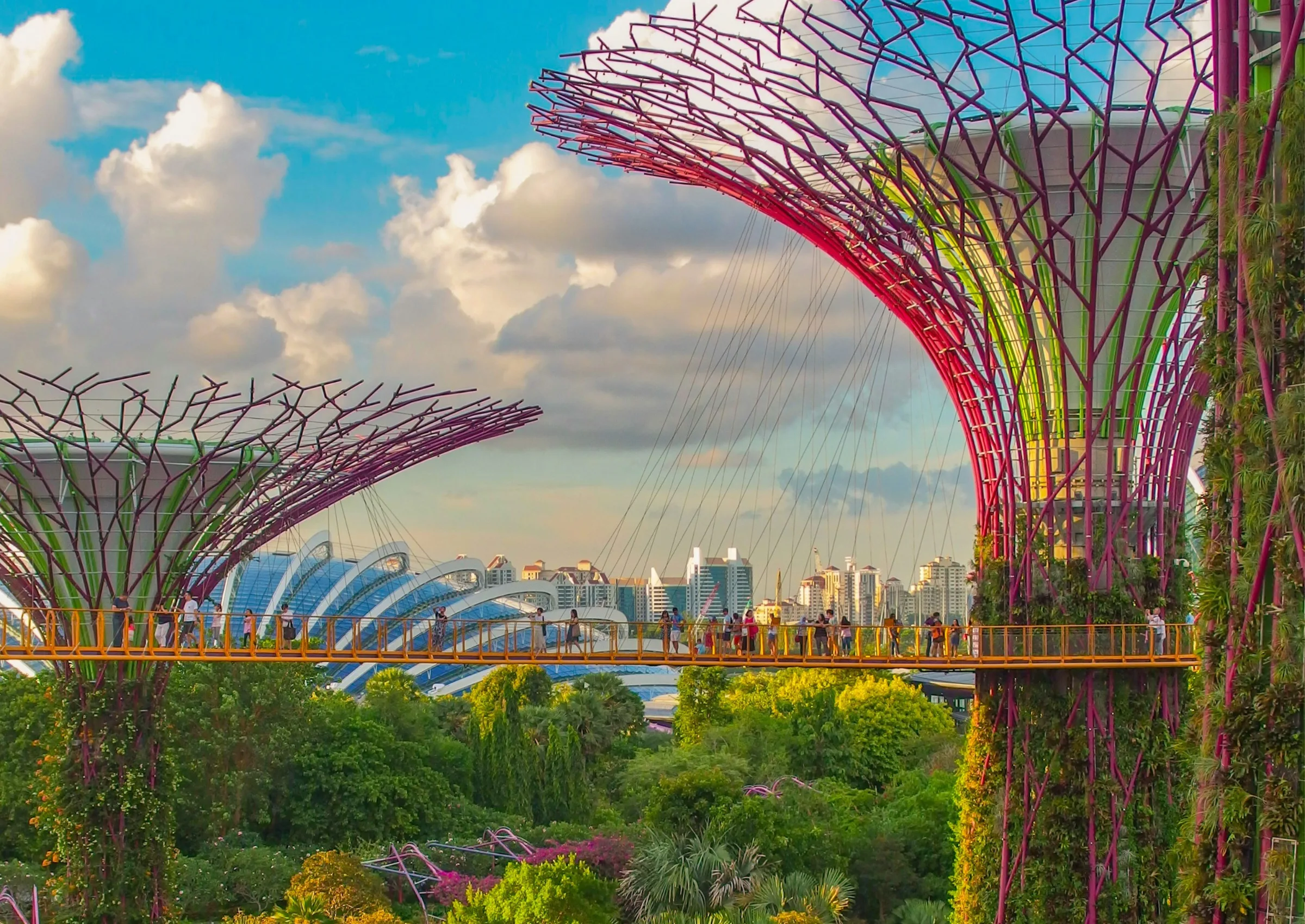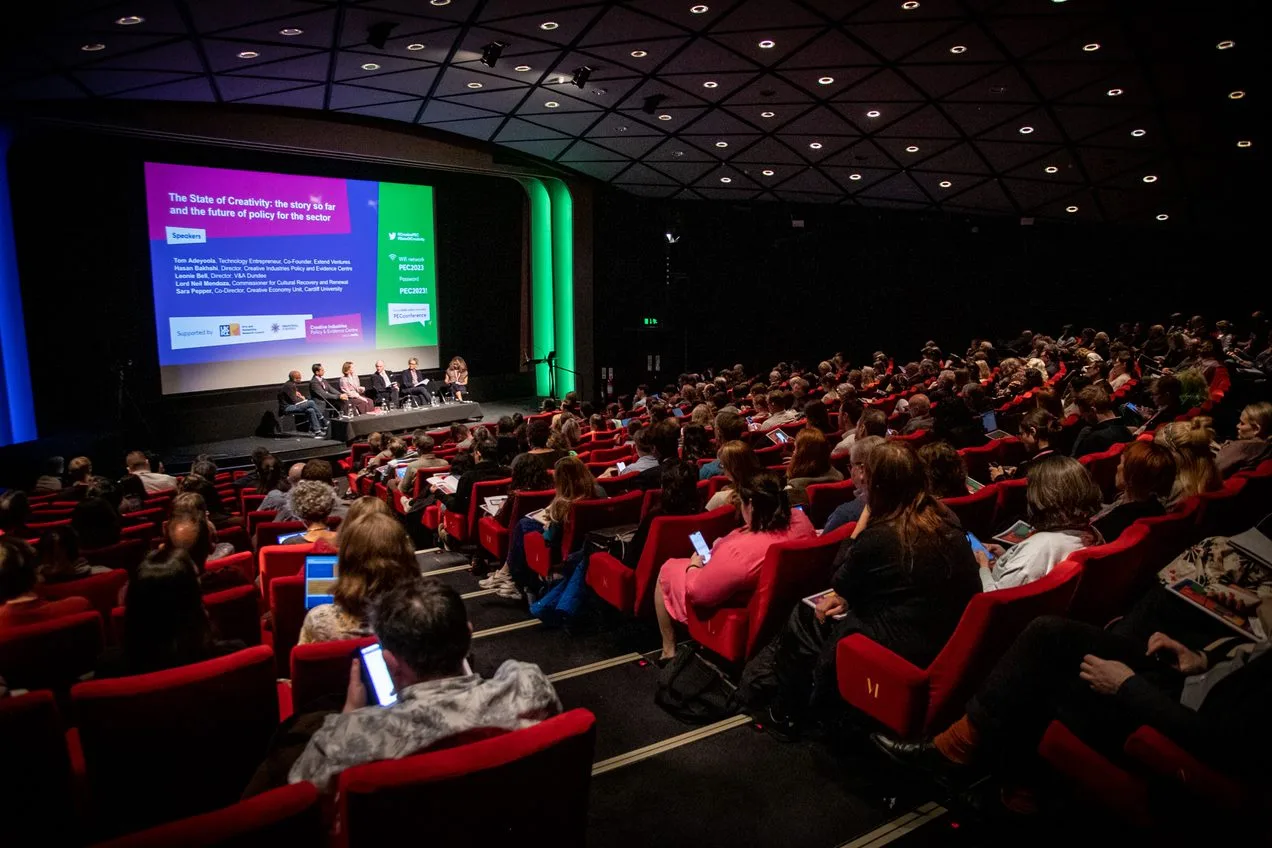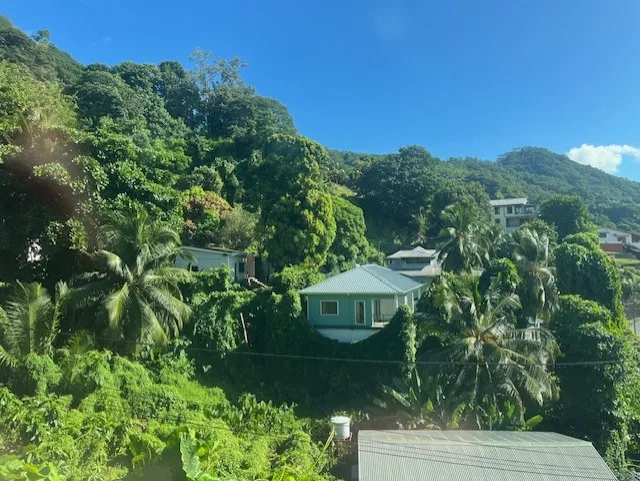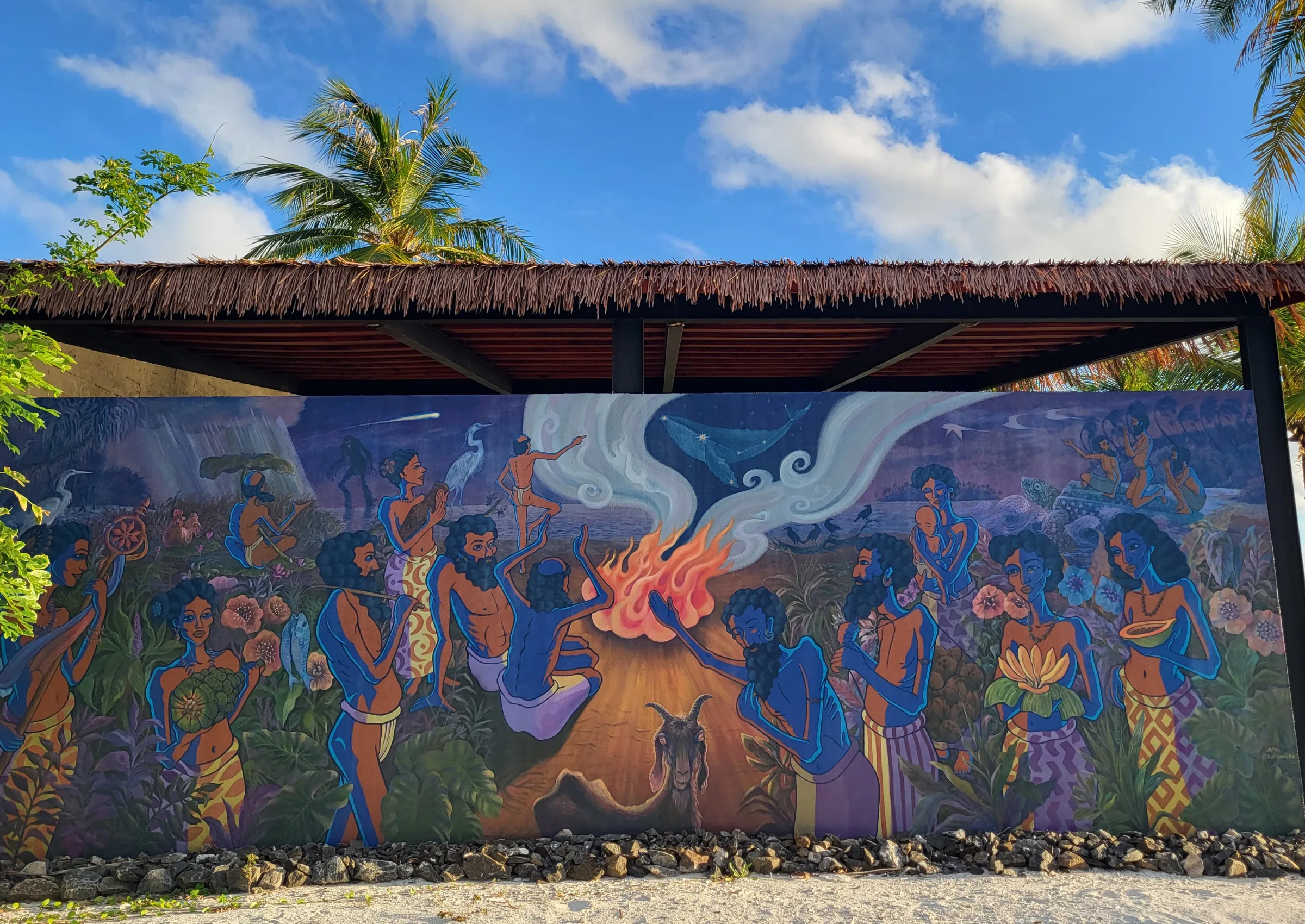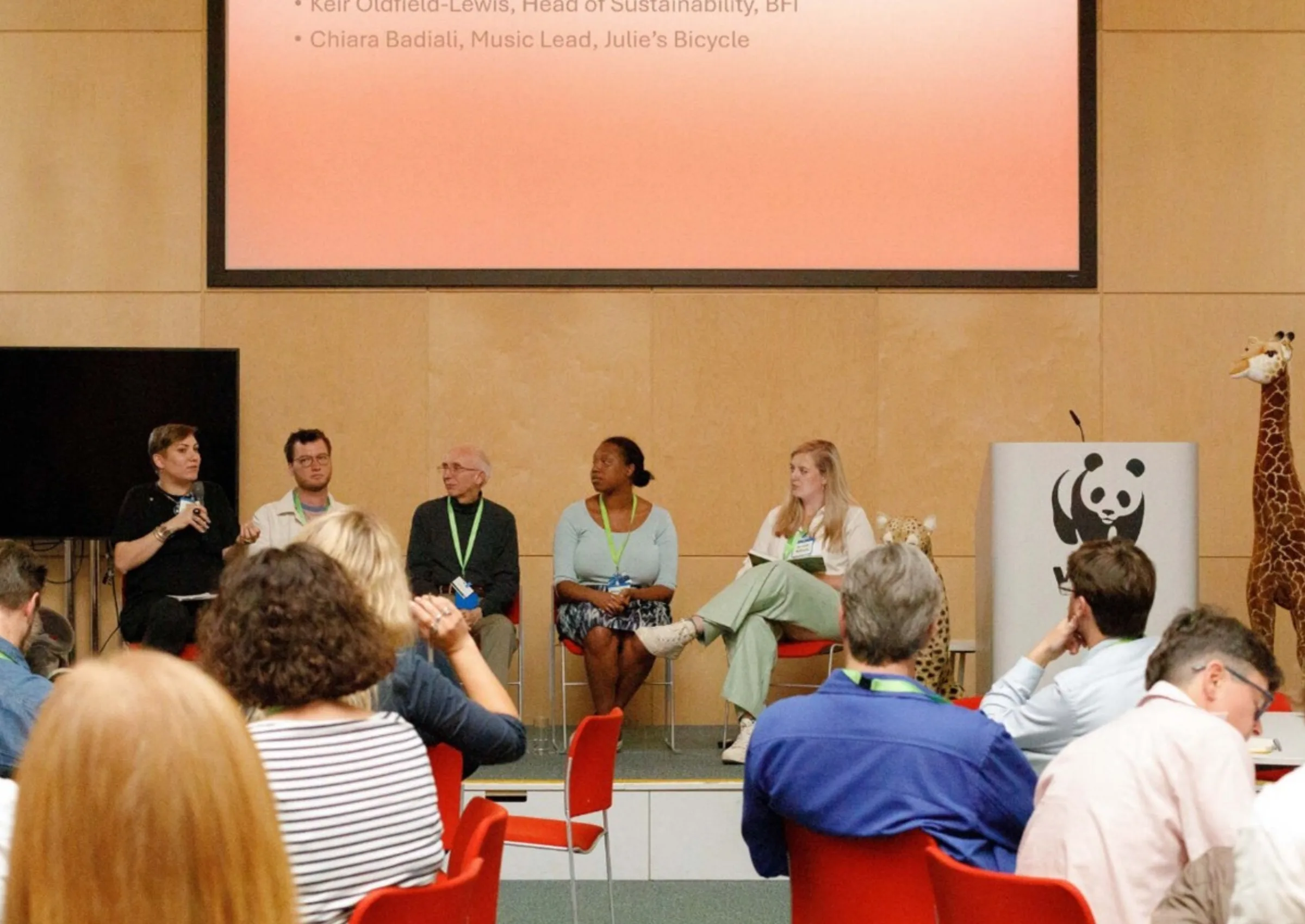“It is with ambition, courage and collaboration as we approach the crucial COP26 summit in the UK that we can seize this moment together, so we can recover cleaner, rebuild greener and restore our planet.” (Boris Johnson, COP26 Explained)
There couldn’t be a more opportune moment to embark on a project to understand how the theatre sector can recover and rebuild in ways that contribute toward the UK’s net-zero emission target by 2050. Our research explores how a creative industry that has been severely affected by Covid is making a long-term transition to sustainable practices by embedding circular economy principles.
The “Transitioning to Sustainable Production across the UK Theatre Sector” project focuses on the ambitious first volume of the Theatre Green Book. Developed with and supported by all leading UK theatre bodies and sustainability organisations, the Theatre Green Book has been created by an unprecedented coalition of UK theatre-makers, including freelancers, venues, companies and producers. It presents a statement of shared and negotiated values, draws together current best practice in sustainable production, and sets out collective standards for achieving change in response to climate crisis.
Within months of its publication in a “beta version” in March 2021, the National Theatre, National Theatre of Scotland, and National Theatre Wales had committed to making all their shows to Green Book production standards. Coinciding with COP26, the second and third volumes (which focus on buildings and operations respectively) will be launched on 4 November in London at the Theatres Trust annual conference, with the theme “Making Theatre Sustainable”.
In order to be effective and have sector-wide impact and acceptance, the Theatre Green Book must be practicable in an uncertain, fragile environment and at a time when theatres are prioritising financially viable reopening strategies.
The first edition was produced while practitioners were largely on hiatus (with time for reflection that is unavailable during production schedules constrained by cost and scale) and based on knowledge and practices established pre-pandemic and prior to Brexit. Its principles, guidelines and targets now need to be refined as a new political and cultural landscape unfolds. This requires real-world trialling and the availability of clear examples that demonstrate the Theatre Green Book’s implementation in different types of production work.
We will be producing three Case Studies of productions that are trialling the Theatre Green Book. These Case Studies will map experiences and outcomes from the start of the production process, and will identify some of the key challenges of low carbon/low waste theatre-making in a variety of current contexts. Just as importantly, they will present a range of problem-solving journeys, revealing their productions’ most important whats, whys and hows.
This approach aligns with the model proposed in the report, Cultural and creative sectors in post-COVID-19 Europe (February 2021), which describes how alternatives must be visible and accessible if we want to move from pre-pandemic experiments that counter unsustainable practices and to stabilise new ways of creative doing and thinking.
It will also allow us to analyse the influence of voluntary industry-wide standards and guidelines on the carbon footprints of individual productions and, more broadly, the compounded impact of Covid and Brexit on sustainable theatre-making practices and aspirations. This will lead to evidence-based policy recommendations about the infrastructures, training, professional development opportunities and resources that are required to urgently address the UK theatre industry’s environmental impacts.
This research project is supported by the Creative Industries Policy and Evidence Centre and Arts Council England.
This climate change initative is still at an early stage – if you would like to stay up to date with our plans and latest research, sign up to our newsletter.
Related Blogs
Research resources on Creative Clusters
We’ve collated recent Creative PEC reports to help with the preparation of your Creative Cluster bid…
What UK Job Postings Reveal About the Changing Demand for Creativity Skills in the Age of Generative AI
The emergence of AI promises faster economic growth, but also raises concerns about labour market di…
Creative PEC’s digest of the 2025 Autumn Budget
Creative PEC's Policy Unit digests the Government’s 2025 Budget and its impact on the UK’s creative …
Why do freelancers fall through the gaps?
Why are freelancers in the Performing Arts consistently overlooked, unseen, and unheard?
Insights from the Labour Party Conference 2025
Creative PEC Policy Adviser Emily Hopkins attended the Labour Party Conference in September 2025.
Association of South-East Asian Nations’ long-term view of the creative economy
John Newbigin examines the ASEAN approach to sustainability and the creative economy.
Culture, community resilience and climate change: becoming custodians of our planet
Reflecting on the relationship between climate change, cultural expressions and island states.
Cultural Industries at the Crossroads of Tourism and Development in the Maldives
Eduardo Saravia explores the significant opportunities – and risks – of relying on tourism.
When Data Hurts: What the Arts Can Learn from the BLS Firing
Douglas Noonan and Joanna Woronkowicz discuss the dangers of dismissing or discarding data that does…
Rewriting the Logic: Designing Responsible AI for the Creative Sector
As AI reshapes how culture is made and shared, Ve Dewey asks: Who gets to create? Whose voices are e…
Reflections from Creative Industries 2025: The Road to Sustainability
How can the creative industries drive meaningful environmental sustainability?
